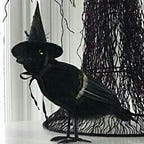Flat Horror
It is possible to get a train from London to Reading and never really leave the city. Just as one conurbation finally peters out, the satellite suburbs and commuter towns relinquishing their grip to what passes for a wilderness in the manicured south of England, the next one begins. You will, of course, see glimpses of fields and patches of woodland, but these are all in service to the houses, to the bland estates named after the trees that were chopped down to pave the way for them, that throng the passage of the railway line.
There are plenty of patches like this, around the UK. Around the world. Cities reaching out to each other. Sending feelers of infrastructure, accreting around existing settlements like pearls around grit, self actualising at the pace of human progress. I used the opening example of London and Reading only because I used it as a teenager attempting to write dystopian stories about urban unrest. Except now I don’t think of it as dystopia.
We don’t build cities so much as reveal their existence. Like a sculptor uncovering the statue contained in a block of marble. The lay of the land is just a guide to what sort of buildings can be built, which skylines can be imposed. The city needs us to build it, and we need the city to live in. The Ur-city was Ur; so fundamental that we now use its name as a prefix for any foundational, platonic construction. The Ur-wilderness was Eden, but it was a paradise that was inhospitable to human life. We tore it down and revealed the city beneath it. That is what knowing our true nature means.
A city is unfair in a way that the wilderness is merely uncaring. This is comforting. The wilderness doesn’t care if you live or you die. It doesn’t even care if you consume it and replace it with a city, or if it consumes you to replace you with itself. A city cares, though. It needs you to exist. It consumes you to extend itself. Your place is the clear product of decisions made about your worth, your utility and and the desires of the entities making those decisions. You either give meaning to the buildings, to those wonders of human extravagance, by occupying them, or you keep the machinery that extends them moving.
The city is display case and engine. It generates culture and form and joy and sorrow not only for the benefit of those who consume them, but to provide meaning for those who create them. Just as a bus must transport a commuter in order to provide work for the bus driver so a play must be watched by an audience in order to provide work for the actor. For without these things the city would not be a city but a ruin.
Heavy Metal was born in cities. Black Sabbath played in the rhythms forged into their bodies during factory toil. They played loud so that they could hear themselves above the industrial din of Birmingham. In this way heavy metal is a kind of folk music, along with the music of the looms, the shanties of sailors and the keel lads on Sandgate singing as they row the coal in.
Blake’s dark, satanic mills bred a worker who was detached from their rural roots, detached from the fruits of their labour, but not detached from the rhythm of the work itself. Maybe that is the root of that satanism — an oppositional reclamation of self from the structures of dehumanisation. The rural worker, secure in their craftsmanship, did not need to be set against anything because they owned their work and their songs tell of freedom and joys. (although they didn’t own it so much as have a control over the totality of produce that nevertheless required them to work or die). But the urban worker, the factory worker, and the mill worker, own nothing of themselves except that which they steal back. So they steal back the ideas. they turn the loom into a beat, they steal music from the air that grinds them down.
Trv Kvlt black metal claims to have been born in the dark forests of Norway, but it wasn’t. Venom, who coined the term and were progenitors of the sound, come from a city. Newcastle-upon-Tyne, a gateway to the world, building the ships that turn even the oceans to the service of cities — nomadic packets of urban logic travelling to and fro, city to city. Newcastle also processed the coal, the black stuff that fuels cities and lets them grow at the expense of the integrity of the land around them. Everything has a sacrifice.
Black metal may have fled to the forests of the beginning of time, but the city caught up with it anyway. Post black metal is the return home. Black metal was searching for meaning, with its uneasy dalliances into nationalism, its teenage dressing up and the destruction of churches. It was a defiance caught in a need to will one’s own world into existence: oppositional and rule-bound. Back in the city we realise that meaning is not available to us, but stripped from us instead. We cannot be who we are, only what we are allowed to be in the gaps.
Suburban horror is about the imposition of chaos into order. About the breaching of a place of safety. Rural horror is the punishing of those who pierce the film, who explore where they shouldn’t. Urban horror is just realising that you are living side by side with it. Black Metal, as an artform, is an abstraction away from horror: an attempt to become the horrific. In the city, at the core of existence, the horror of existence is married to one’s existence as horror. In the end, nihilism is unnecessary, because the city swallows all meaning anyway.
